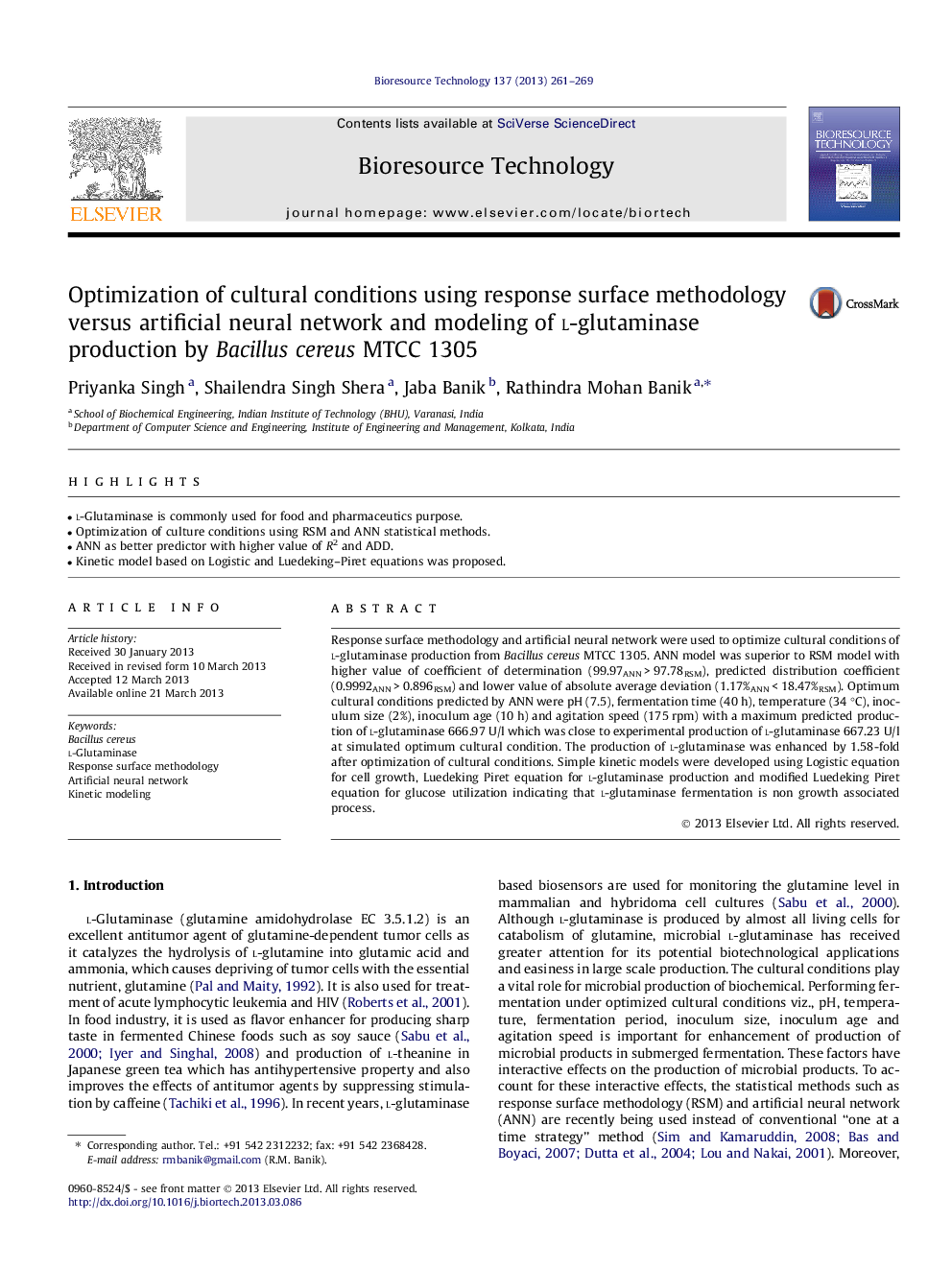| کد مقاله | کد نشریه | سال انتشار | مقاله انگلیسی | نسخه تمام متن |
|---|---|---|---|---|
| 681158 | 1460006 | 2013 | 9 صفحه PDF | دانلود رایگان |

• l-Glutaminase is commonly used for food and pharmaceutics purpose.
• Optimization of culture conditions using RSM and ANN statistical methods.
• ANN as better predictor with higher value of R2 and ADD.
• Kinetic model based on Logistic and Luedeking–Piret equations was proposed.
Response surface methodology and artificial neural network were used to optimize cultural conditions of l-glutaminase production from Bacillus cereus MTCC 1305. ANN model was superior to RSM model with higher value of coefficient of determination (99.97ANN > 97.78RSM), predicted distribution coefficient (0.9992ANN > 0.896RSM) and lower value of absolute average deviation (1.17%ANN < 18.47%RSM). Optimum cultural conditions predicted by ANN were pH (7.5), fermentation time (40 h), temperature (34 °C), inoculum size (2%), inoculum age (10 h) and agitation speed (175 rpm) with a maximum predicted production of l-glutaminase 666.97 U/l which was close to experimental production of l-glutaminase 667.23 U/l at simulated optimum cultural condition. The production of l-glutaminase was enhanced by 1.58-fold after optimization of cultural conditions. Simple kinetic models were developed using Logistic equation for cell growth, Luedeking Piret equation for l-glutaminase production and modified Luedeking Piret equation for glucose utilization indicating that l-glutaminase fermentation is non growth associated process.
Journal: Bioresource Technology - Volume 137, June 2013, Pages 261–269